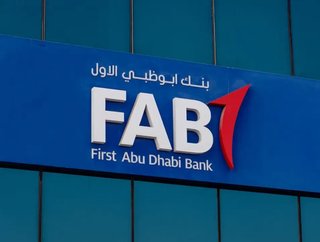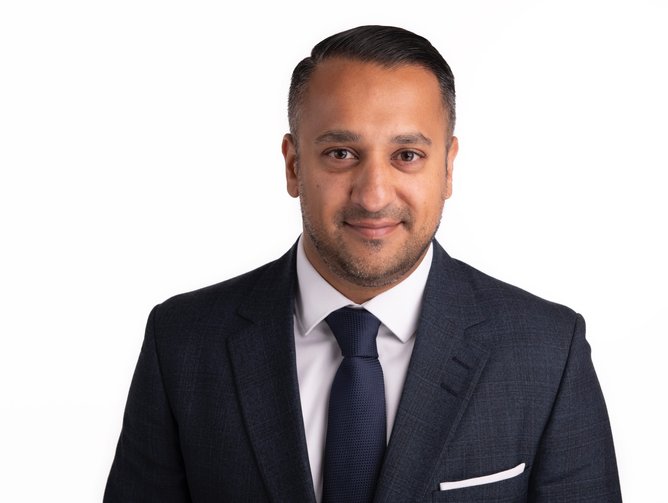FAB takes strides toward net zero ambition with new targets

When it comes to net zero ambition, First Abu Dhabi Bank is leading the MENA region’s banking sector charge – and is now taking bigger sustainability strides with new targets ahead of COP28.
Headquartered in Abu Dhabi but with a strategic global footprint across 20 markets and total assets of US$323 billion, the UAE’s largest lender is among the top 50 globally by market cap – and one of the world’s largest banking institutions.
FAB is also the best ESG performer within the MENA banking system and sits in the top 10% of global banks in ESG rating, according to Refinitiv – not to mention the leading bank in the region’s green finance market.
Such accolades are unsurprising, given the bank’s growing list of regional and global sustainability firsts.
The first bank to commit to the UAE's net-zero target by 2050, the first GCC bank to join the UN-convened Net-Zero Banking Alliance in 2021 (and is still the only UAE signatory), and the first MENA-region bank to issue a green bond (2017).
FAB has since completed 14 more bonds and remains top in the MENA Bond market, as it look to achieve US$75 billion in sustainable finance by 2030.
Just this month, the bank issued the first-ever UAE dirham-denominated green sukuk, marking the largest at AED1.3 billion, and delivering “an important milestone for both green finance and Islamic finance in the UAE”, Group CEO Hana Al Rostamani said in a statement.
As part of its ambitious roadmap to net-zero by 2050, FAB plans to not only achieve net zero in it own operations but also reduce carbon intensity in high-emitting sectors – transitioning all operational and attributable GHG emissions (Scope 1, 2, and 3) from its lending and investment portfolios.
Earlier this year, it became the first bank in the MENA region to set financed emissions reduction targets, scoping its portfolio to identify the highest emitting sectors and clients and setting targets across three key sectors – oil and gas, power, and aviation.
Following on from this first wave of sector disclosures, FAB is now taking its net-zero strategy to greater heights.
Expanding emissions reductions targets to five new sectors
Ahead of COP28, the lender has extended its financed emissions reduction targets to include five further high-emitting sectors – agriculture, aluminium, cement, commercial real estate and steel.
According to FAB’s just-published Pathway to Net Zero report, the combined targets for the eight sectors will cover 90% of the bank’s financed emissions for corporates.
Among 2030 sector targets, FAB is looking to reduce scope 1, 2 and 3 emissions by up to 45% in agriculture, up to 32% in steel, and up to 55% in commercial real estate.
With such targets, the bank is looking to “inform and enable better investment decisions as well as advance the growth objectives of our clients, as they pursue their own transition and decarbonisation ambitions”, says CSO, Shargiil Bashir, who has led FAB’s ESG efforts for the last three years.
FAB – 2030 sector financed emissions reduction targets
Oil and gas -7% to -15%
Power -64%
Aviation -15%
Agriculture -35% to -45%
Aluminium -32%
Cement -25%
Commercial Real Estate -45% to -55%
Steel -26% to -32%

Making sustainable strides since 2021
Since becoming an NZBA member in October 2021, FAB has made significant sustainable strides, putting in place its Sustainable Finance Framework, which focuses on climate change adaptation and mitigation and considers green financing a core component.
As Shargiil told sister publication Business Chief last month, achieving the transition to net-zero emissions by 2050 “requires substantial mitigation investment in emerging markets and developing economies, which currently emit around two-thirds of greenhouse gases”.
FAB aims to disburse US$75 billion in green finance by 2030, and as of September 2023, had achieved 36% – equivalent to US$27.1 billion, cementing the bank’s lead in regional sustainable finance.
Shargiil says green finance should be an “active concern to CEOs”, given its potential to significantly impact a company’s financial performance, its access to capital, risk management, sustainability goals, reputation, regulatory compliance and stakeholder relationships.
“If we focus on sustainability goals, green finance directly aligns with these targets – and it is every CEO’s responsibility to ensure that their companies are on track to meet these goals.”
FAB at COP28 – sustainable finance taking centrestage
Accelerating sustainable finance and advancing the UAEs’ development as a green finance hub is at the top of First Abu Dhabi Bank’s six-point COP28 agenda.
Recently becoming the first bank globally to join the COP28 Net-Zero Charter, which holds the private sector accountable on net zero, FAB has signed up to be a strategic pathway partner of the climate conference, taking place in the UAE from November 30 to December 12, 2023.
Here, as a regional pioneer in green finance, FAB will take part in a series of engagements and thought leadership initiatives throughout the summit.
Fixing climate finance is a key pillar of the upcoming conference with experts set to bring recommendations on a new framework for international climate finance to COP – along with a roadmap on how to implement the recommendations.
According to Dr Sultan Al Jaber, the COP28 President-Designate, for too long, climate finance has divided the international community and held back progress in tackling climate change and supporting countries most impacted by it.
“But climate finance is the issue that lies at the core of the COP28 agenda because finance is how we transform goals into reality. The time for action is right now.”
Along with accelerating green finance, FAB’s six-point COP28 agenda includes supporting clients with the transition to net zero, growing ESG awareness and adoption among SMEs, advancing effective carbon market through production innovation; advocating for restoration of natural ecosystems; and empowering individuals to take positive environmental action.
Read more about FAB’s updated pathway to net zero 2050 in its new report






